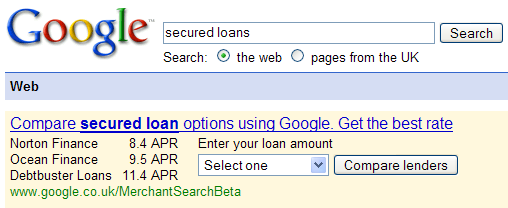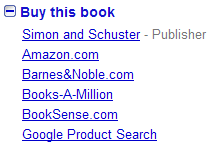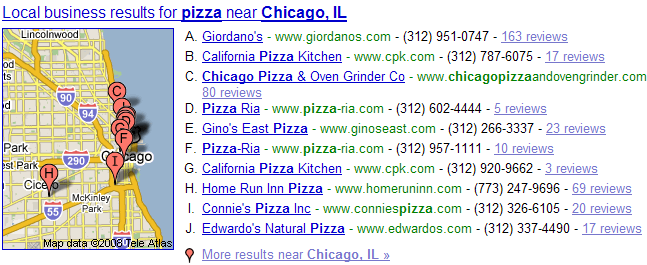Google as Affiliate, Affiliate Network, Ad Network, & Ad Agency
Google recently expanded their ad offering by inserting AdSense ads on maps, putting AdSense image ads & banners on image search results, opening up AdSense for Games, and monetizing Youtube with affiliate ads for Amazon.com and Apple iTunes.
The NYT article on AdSense for Games (linked above) promises a couple more new ad units in the coming weeks, and highlights Google's new ad strategy
For the text and graphic ads (but not video) Google will also look at the context of the game and the page it is on for clues that might indicate whether some of the ads targeted by keyword are appropriate.
Mr. Oestlien indicated one small feature of Google’s program that may represent a significant change in the company’s approach: It is starting to broker deals between game publishers and advertisers to have their products integrated into the actual play of the games. For example, a dog food company could have its latest kibble built into Pet Society, a game on Facebook that now has Google ads.
On the high end for brand advertisers Google is becoming something that looks, smells, walks, and talks like an agency. Take a look at this ad unit.
And on the lead and retail front, Google is looking to become the web's largest affiliate. Everyone in search marketing (and online media) need to take a strong look at the merchant beta test Google conducted

How long until Google goes after other online ad markets that are worth hundreds of millions or billions each? More and more Google searches may end up clicking through to a Google property or a Google navigational aid. If Google can get enough merchants to buy in, any (or all) of these could become affiliate links. If the data can be structured Google can take their tax.






AdWords effectively killed the longtail by recycle brand ads on longtail search queries. Look for that consolidation to continue. If the SERPs hold custom ad units by Google, is your lead value and brand big enough to be able to pay for the leads? If not, how can you deepen your experience to create a citation-worthy service that goes deeper than Google is willing to go?
Update: As John Andrews highlighted, Google aggressively cashes in on branding, so if you own a brand you owe it to them to be liberal with their guidelines.




Comments
It's things like this that will eventually kill the golden goose. Google, like all search engines, can't function without webmaster support. But every time they add something like this they encroach into new markets, sometimes making them entirely unprofitable for anyone else to compete in.
At what point does it become more profitable simply to block Googlebot? The simple answer is, when the average website stands no chance of making it anywhere near the first 30 spots. With the dominance of Wikipedia, YouTube, and everything else from Google, that could be all too soon.
Aaron, it's a funny coincidence to read this perspective as I wrote about this very same topic just a few weeks ago, in the context of Google looking to monopolize e-commerce soon, and eliminate search as a channel for affiliates. Have a look and tell me what you think http://cli.gs/aPUgNX
I agree with 99% of that post. The one spot I differ in opinion is that I can't imagine eBay blocking Google from indexing the eBay site. Not only does eBay have one of the most aggressive online SEO strategies, but they were also Google's lead advertiser for many years, and probably still are. What happens to eBay's margins and growth if they lose 10% of their business by blocking Google?
We are leaving search engines behind and moving into peer networking. If you are already in your prospects neighborhood, they won't have to search for you. It is well established that a company or even a single product can be a "user" or member on a social networking site. Integrate, contribute and interact. You become a peer.
The internet is adjusting and in the post search engine dominance days it will return to a closer version of Tim's vision when it began. It will still be the most powerful marketing vehicle in history, and it will still cost to have a presence, but rather than pay for ads and rank, the business spend will be on the staff they assign to manage internet presence in the sharing space on a peer level.
On topics that people are passionate about (politics, religion, investing, SEO) I agree with you that communities have already and/or are replacing search.
But on topics that people are less passionate about search is still the gateway through which people find new sites (and is still a welcome mat to those niche communities that people join...people have to start somewhere).
In some cases it is hard to build communities around some topics unless you are quite creative. The credit card site that bankrate recently bought for $34 million had less than 2,000 inbound links showing up in Yahoo! Site Explorer. In those sorts of areas where people are not passionate the competitive bar to compete is much lower.
Add new comment